Noom Diet: Meal Plans And Pros & Cons
Redefine how you can eat, live, and thrive by building long-term habits.
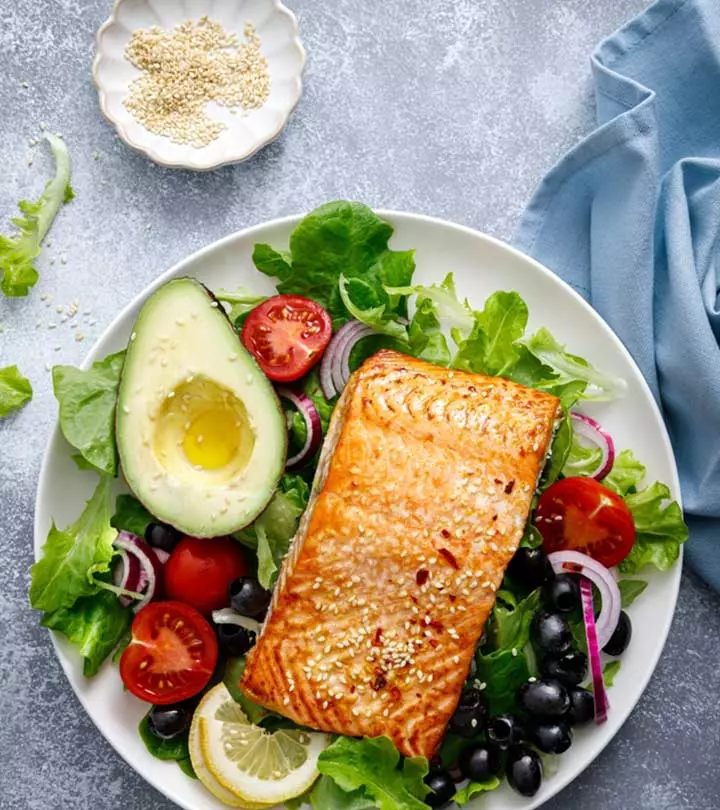
Image: Shutterstock
In a world where new diet trends seem to surface overnight, the Noom diet has emerged as a unique technology-driven approach to weight management. The diet taps into the psychology of individuals to foster healthy habits. It focuses on life-long behavioral changes rather than instant weight loss results. In this article, we will walk you through the different aspects of the Noom diet, including how it works, its pros and cons, and its effectiveness for weight loss. We also provide you with a sample one-week meal plan. Let’s explore what the Noom diet has to offer!
 At A Glance: Noom Diet
At A Glance: Noom Diet- Principle: Consumption of nutrient-rich, low-calorie foods
- Purpose: To inculcate mindful eating habits for healthy weight management
- Who It Is For: Beginners who want long-term weight loss and individuals seeking to build healthy habits
- Duration: Long-term
- Who Should Avoid: People with eating disorders
- Cons: Requires a smartphone and can be expensive for some
In This Article
What Is The Noom Diet?
The Noom diet is a health program that uses technology to help users build the right dietary habits. This program uses a variety of tools and services to help people lose weight, especially helpful for people who do best with guidance and structure. This program measures food intake, provides personalized meal plans, and gives insights based on individual success to keep users interested and motivated during their journey.
It incorporates a subscription-based health application (called Noom) that operates through a smartphone. The app combines physical workouts and meal plans with personalized coaching and support. It educates and motivates users by providing valuable information for a sustainable approach to weight loss. The program aims to make behavioral changes that focus on a healthy lifestyle.
What is unique about the Noom diet is that it works without creating any fear towards a specific food group. It instead adopts an educational approach to assist users in comprehending the principle behind a balanced diet and the rationale behind their food recommendations.
The diet promotes the consumption of low-calorie, nutrition-rich foods like lean protein and fresh vegetables. The app sorts foods into three groups based on their calorie content. These groups include green (low-calorie), yellow (moderate-calorie), and orange (high-calorie). It recommends you to eat more of the ‘green’ foods and very few of the ‘orange’ foods. This way, it helps you make better decisions about your food without entirely eliminating specific foods.
Noom computes the recommended daily calorie range based on your age, gender, and specific weight loss objectives. You just need to record every meal and snack and monitor your daily weight and physical activity on the Noom smartphone application.
 Trivia
TriviaThe basic idea of the Noom diet looks promising. But how effective is it? In the following section, we will explore how this diet works.
Key Takeaways
- Noom focuses on long-lasting results through behavioral changes and healthy lifestyle habits.
- It focuses on nutrient-rich and low-calorie foods and categorizes foods into green (healthy), yellow (to be had in moderation), and orange (to be enjoyed sparsely), encouraging users to make informed dietary choices without strict food bans.
- The Noom app may not be ideal for those with a history of eating disorders.
- Research does support the long-term weight loss benefits of the Noom diet program.
How Does The Noom Diet Work?
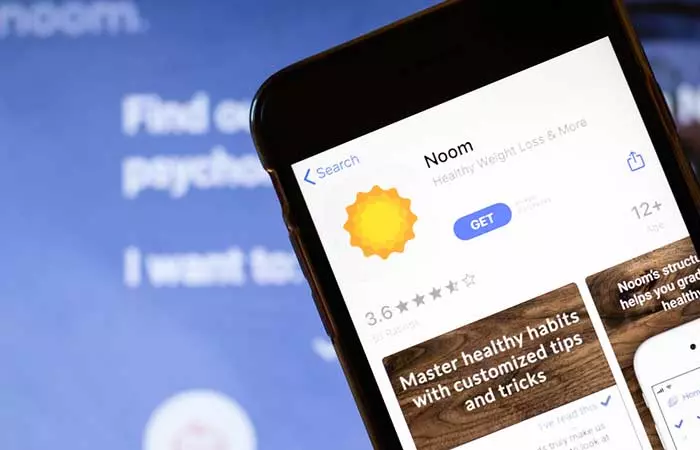
Getting Started
- Download the app on your Android (Noom: Health & Weight) or iOS (Noom: Healthy Weight Loss).
- Take an online quiz that collects data including your age, weight, health status, fitness goals, diet, activity levels, and other related habits.
Setting Goals
- Noom uses the quiz data to create a customized plan for you.
- Based on your input, the app provides a realistic timeline to reach your weight loss goal.
Using The App
- Spend a few minutes on the app every day.
- Browse daily educational articles, tips, and activities at your own pace.
- Log your food intake and workouts.
- Ping your health coach for guidance and support.
- Join Noom Circles, which are coach-led, interest-based communities for additional support.
- Use NoomCoin, an in-app rewards system to keep yourself motivated.
Food Logging And Calorie Budgeting
- Noom categorizes foods into color-coded groups based on their calorie content and nutritional makeup (e.g., green, yellow, orange).
- The app encourages you to choose foods with higher water content and lower calorie density.
- Noom calculates your daily calorie needs based on your profile and lifestyle.
- It sets for you a calorie budget and a target for calorie intake to aid weight loss.
- You can customize your calorie budget or weight loss speed as per your goals.
- Food logging and weekly weigh-ins are promoted to monitor progress and help you stay on track.
 Did You Know?
Did You Know?Feedback And Guidance
- Noom provides feedback and guidance according to your weight loss goals, the foods you log, and your activity levels.
- Coaches and support groups within the app offer information, encouragement, and motivation.
The Noom diet follows a systematic approach to change your behavioral patterns and instill the right habits for long-term weight loss. While this sounds good, the diet does have its own share of advantages and disadvantages. We will explore further in the next section.
Pros And Cons Of The Noom Diet
Pros
- Promotes Accountability
The Noom app offers features that help users stay on track. This makes them accountable for their goals.
- Offers Support And Guidance
The app offers specific guidance on meal choices and daily activities. This is helpful for individuals who struggle to determine healthier food options for them.
- Is Ideal For Beginners
It is especially suitable for those just beginning their weight loss journey as it offers comprehensive guidance, is intuitive, and has lucid instructions.

- Offers Diverse Food Options
Noom encourages the fusion of a wide variety of foods and flavors to ensure a diverse and enjoyable eating experience.
- Has No Food Restrictions
There are no strict restrictions or eliminated food groups on Noom as it promotes a flexible approach to eating.
- Has A Structured Plan
Noom provides a structured plan along with recipes that are easy to follow.
Cons
- Is Expensive
Noom monthly subscription costs close to $60 and not everyone may be able to afford it.
- May Not Be Suitable For Those With Eating Disorders
Noom’s approach may not be suitable for individuals with a history of eating disorders. The app doesn’t set limits on weight loss and may end up encouraging unhealthy habits in some cases.
- Lacks In-Depth Nutritional Guidance
While it is equipped to provide guidance on meal choices, Noom does not offer in-depth nutritional education.
- Requires A Mobile Device
Since it is a mobile app, it may not be accessible to those who do not use a smartphone.
- Offers Virtual Coaching Only
Noom only offers virtual coaching. This may not be as personalized or effective for individuals who prefer in-person coaching.
- May Require Active Engagement
Users’ active involvement, such as their commitment to logging meals and regular usage of the app, are key to the Noom diet’s success. Users may not get the most out of the program’s features if they don’t contribute frequently.
Almost all diet approaches have their own pros and cons. What is important to understand is if a specific diet can help you achieve your health goals. This brings us to the next question – does the Noom diet help you achieve weight loss?
Does The Noom Diet Work For Weight Loss?

Noom can indeed be a valuable tool for weight loss as it offers a unique approach to fostering healthier eating habits and promoting accountability. It doesn’t prescribe a specific daily menu, and instead encourages users to input their food choices and categorizes them through a color-coded system. This simplifies the process of choosing the right foods and also brings awareness to one’s habits.
The diet goes beyond just tracking food and exercise. It also addresses the psychological aspect of weight management and improves a user’s relationship with food by educating them about mindful eating and providing them support through personal coaches.
Research indicates that many users were able to improve their eating patterns and experienced weight loss while using the Noom Coach mobile app (1). Noom is designed to create a calorie deficit, which is a fundamental principle of any weight loss program. It encourages feelings of fullness on fewer calories by focusing on low-calorie foods.
In a study with 70 female participants, those who used Noom with one-on-one guidance from a therapist lost more weight and fat mass compared to those who used the app without any intervention (2). This only tells how the professional support system offered by Noom can help the users achieve their goals more effectively.
In yet another study, Noom users were able to lose more weight than those receiving standard clinical care. After 16 weeks, Noom users lost an average of 12.1 pounds while the comparison group lost less than one pound (3). It is also worth noting that Noom’s approach supports long-term weight loss too. Participants using the Noom app were able to maintain a 7.5% reduction in body weight at 15 weeks and sustain most of the weight loss even at the one-year mark (4).
These studies suggest that Noom can not only assist individuals to lose weight but also maintain it over time.
Sample 1-Week Noom Diet Plan
| Monday | Tuesday | Wednesday | Thursday | Friday | Saturday | Sunday | |
|---|---|---|---|---|---|---|---|
| Breakfast | Vegetable frittata and two slices of whole-grain bread | One egg sandwich | A glass of banana- ginger smoothie with egg whites | One scrambled egg wrap | A glass of cranberry, apple, nutmeg smoothie | One bowl of raspberry yogurt parfait | Apple and banana with oats soaked in almond milk and flaxseed, walnuts, and honey |
| Lunch | One slice of Mediterranean turkey sandwich | One bowl of lemony fennel salad | One bowl of butternut squash bisque | One bowl of kale and white bean soup | One bowl of vegetarian bean chili | Herb-stuffed squash | One bowl of broccoli quinoa pilaf |
| Dinner | One bowl of vegetarian bean chili | A single serving of tofu pad thai | One lean pork lettuce wrap | One bowl of crisp stir-fry vegetables | One bowl of eggplant and green bean salad with noodles | Green bean casserole | One bowl of mushroom and rice soup |
| Snack (consume in moderation) | Spiced sweet potato chips | Fig and prosciutto tortilla bites | Banana Nutella roll-up | Smoky paprika kale chips | Chocolate cake | One bowl of creamy cucumber and dill salad | One anchovy and tomato toast |
The Noom diet is flexible and allows you to incorporate a wide range of foods. That said, not all foods are created equal. Consuming certain foods and restricting a few others can make your efforts more effective. Learn more in the next section.
Foods To Eat And Restrict On The Noom Diet
With Noom, the key is being mindful of the color-coded food system that categorizes foods under green, yellow, or orange based on their calories and nutrient density. Understanding these color codes can help you make informed choices to support your weight loss goals.
Foods To Eat

Green Foods
Green foods are your allies in the Noom Diet. They are nutrient-dense, lower in calories, and a substantial part of your daily intake. These foods include:
- Spinach
- Broccoli
- Bell peppers
- Apples
- Bananas
- Strawberries
- Oatmeal
- Brown rice
- Quinoa
- Non-fat yogurt
- Non-fat cheese
- Unsweetened almond milk
- Tofu
These foods provide essential nutrients while helping you effectively manage your calorie intake.
Yellow Foods
Yellow foods have moderate amounts of calories and nutrients. They should be consumed in moderation. Examples include:
- Lean proteins such as grilled chicken, turkey breast, lean ground beef, and eggs
- Tuna and salmon
- Greek yogurt
- Low-fat cheese
- Black beans
- Chickpeas
- Whole-grain tortillas
Yellow foods add variety to your meals and also aid your weight loss objectives.
Foods To Restrict
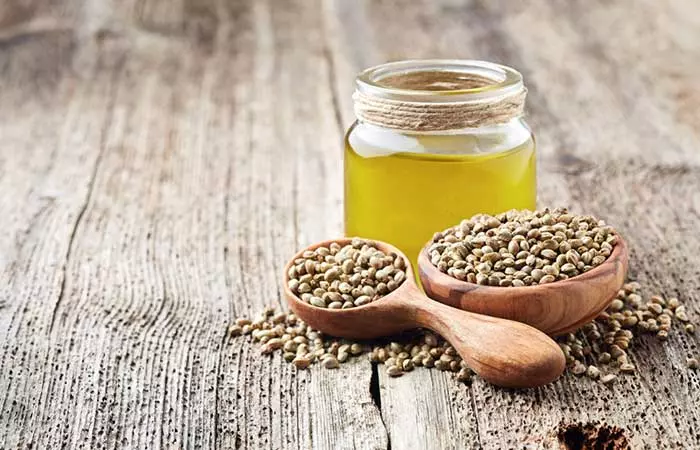
Orange Foods
While no foods are strictly off-limits on the Noom Diet, the app organizes calorie-dense foods as ‘orange’ foods that may be enjoyed in smaller portions and not as frequently as the other food groups. Orange foods include:
- Oils
- Seeds
- Nuts
- Nut butters
It is important to be aware of the portion sizes of orange foods. In simple words, roughly 30% of your daily food intake should consist of green foods, while 45% should be yellow foods, and the rest 25% should come from the orange category. The key is to maintain balance.
In the world of dieting, Noom stands out as a tool for lasting change and a healthier relationship with food. Noom’s smartphone app is a companion that guides users through daily activities and meal logging and provides support from personal coaches and communities. The beauty of the Noom diet lies in the elimination of fear of certain foods. This makes room for mindful eating and healthier living. It promotes the consumption of nutrient-rich, low-calorie foods by categorizing them into green, yellow, and orange food groups. However, remember that its effectiveness depends on your commitment to make behavioral changes and informed food choices. Noom isn’t a miracle solution, but it can be a valuable ally on your journey to a healthier you.
Infographic: A Simple Guide To The Noom Diet
Noom is more than just a diet; it’s a comprehensive lifestyle program. It offers a unique approach to sustainable weight loss and helps individuals improve their overall health and lifestyle by focusing on behavioral changes. The Noom app features a color-coded system to categorize foods to help you make healthier dietary choices. In the following infographic, we take you through the foods you can consume on the Noom diet to maximize your results. Check it out.

Illustration: StyleCraze Design Team
Frequently Asked Questions
Is Noom suitable for everyone?
No, Noom may not be suitable for everyone. It may not be appropriate for individuals with certain medical conditions or specific dietary needs. Consult with a healthcare professional first to understand if it suits your specific circumstances.
Is exercise a part of Noom?
Yes, physical exercise is encouraged on the Noom program. It focuses on behavior modification and eating preferences while providing exercise instruction and tracking.
Is Noom a sustainable diet plan?
It depends on the individual. Noom aims to promote sustainable weight loss by focusing on long-term behavioral changes rather than quick fixes. However, long-term success depends on the individual’s dedication to the program and their ability to maintain healthy habits over time.
Is the Noom diet the same as other popular diets?
No, it is not. The Noom diet is unique as it has a subscription-based program that focuses on long-term changes by inculcating mindful eating habits and changing behavioral patterns. It does not eliminate any type of food. It also offers personalized coaching alongside dietary guidance, and is, hence, different from many traditional diet plans.
Can I follow a specific diet, like keto or vegan, while using Noom?
You can follow restrictive diets such as keto or vegan while using Noom. Noom can be customized as per your chosen approach.
Illustration: Noom Diet: Meal Plans And Pros & Cons
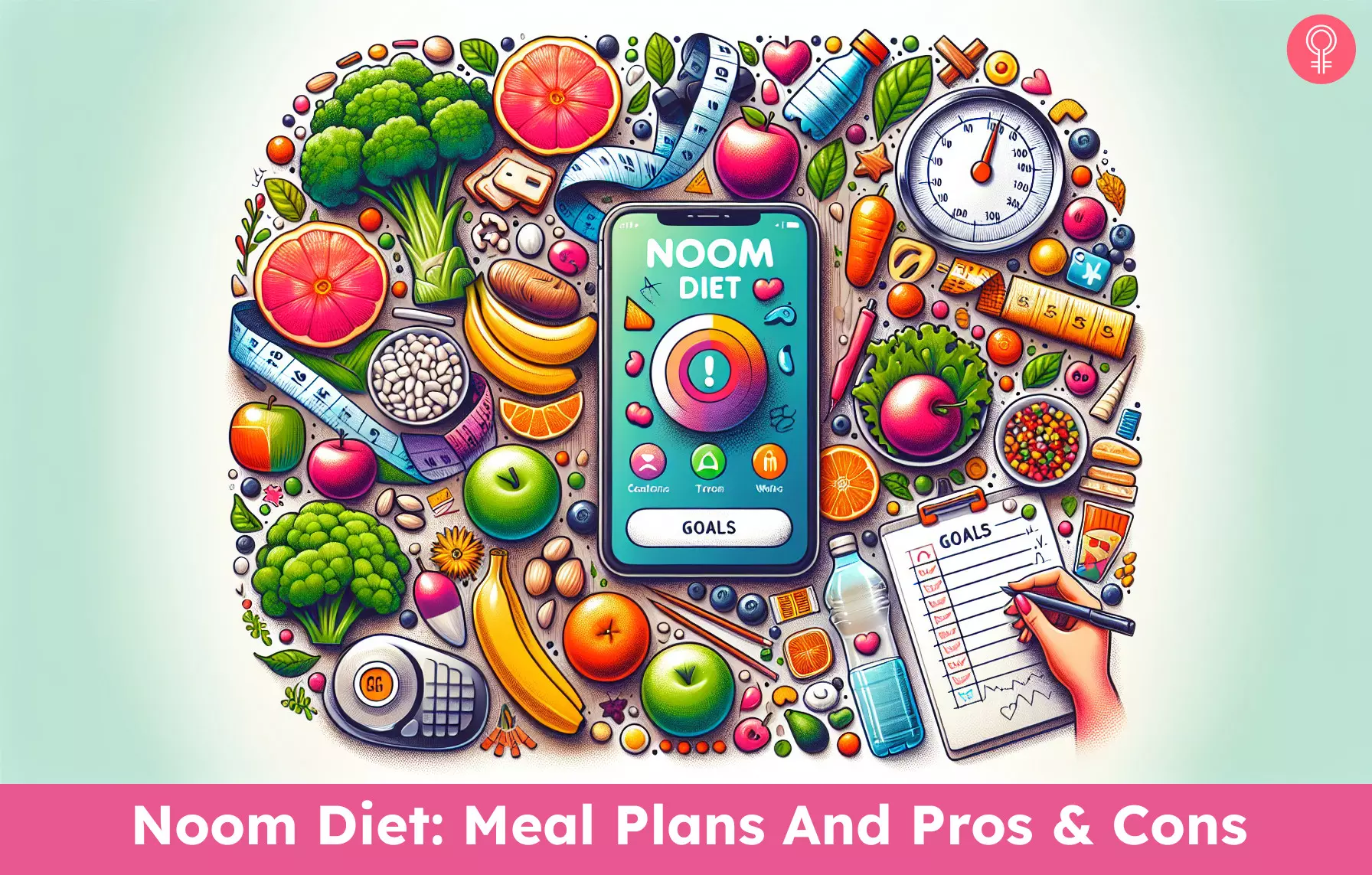
Image: Dall·E/StyleCraze Design Team
Learn about the Noom diet and change your lifestyle by opting for mindful and healthy eating habits. The video provides insights into how the application works, how food is categorized according to the diet, its various pros and cons, and its potential to alter behavioral patterns for long-term benefits.
References
Articles on StyleCraze are backed by verified information from peer-reviewed and academic research papers, reputed organizations, research institutions, and medical associations to ensure accuracy and relevance. Read our editorial policy to learn more.
- Successful weight reduction and maintenance by using a smartphone application in those with overweight and obesity
https://www.ncbi.nlm.nih.gov/pmc/articles/PMC5098151/ - Multidimensional cognitive behavioral therapy for obesity applied by psychologists using a digital platform: open-label randomized controlled trial
https://mhealth.jmir.org/2020/4/e14817/ - Mobile health lifestyle intervention program leads to clinically significant loss of body weight in patients with NASH
https://journals.lww.com/hepcomm/Fulltext/2023/04010/Mobile_health_lifestyle_intervention_program_leads.5.aspx - Effectiveness of a smartphone application for the management of metabolic syndrome components focusing on weight loss: a preliminary study
https://www.liebertpub.com/doi/abs/10.1089/met.2017.0062?journalCode=met
Read full bio of Hannah Whittaker
Read full bio of Aparna Mallampalli
Read full bio of Ravi Teja Tadimalla
Read full bio of Sindhu Koganti







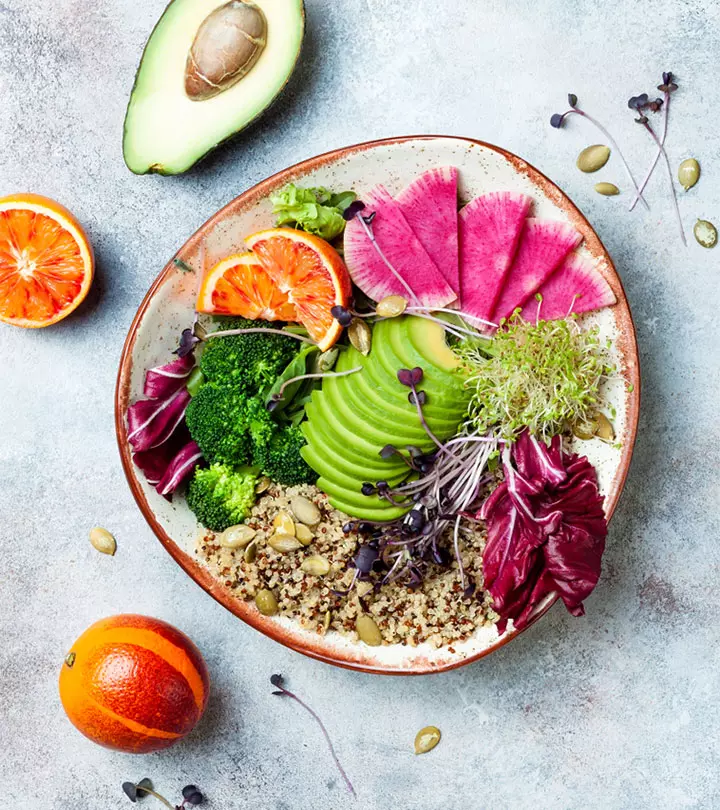




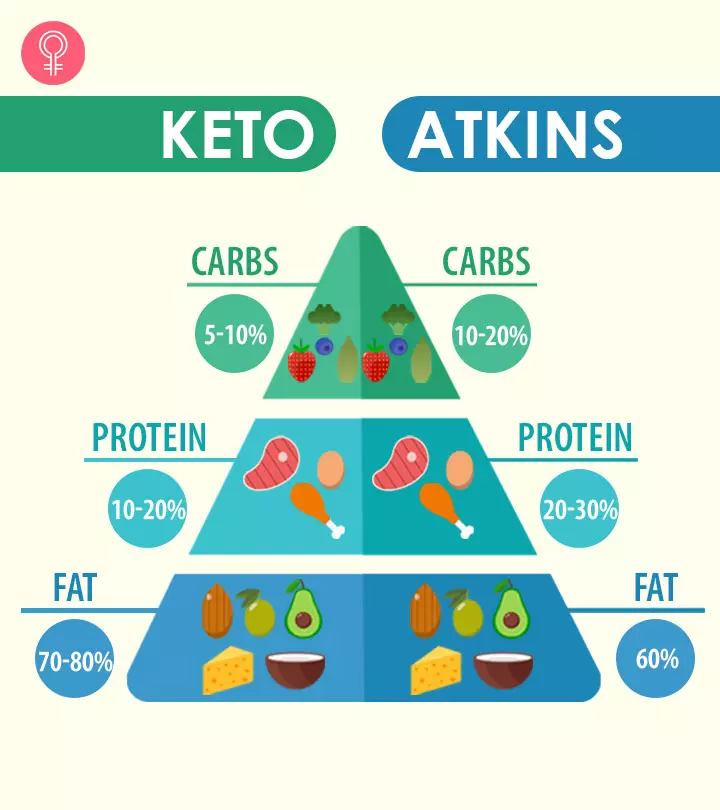




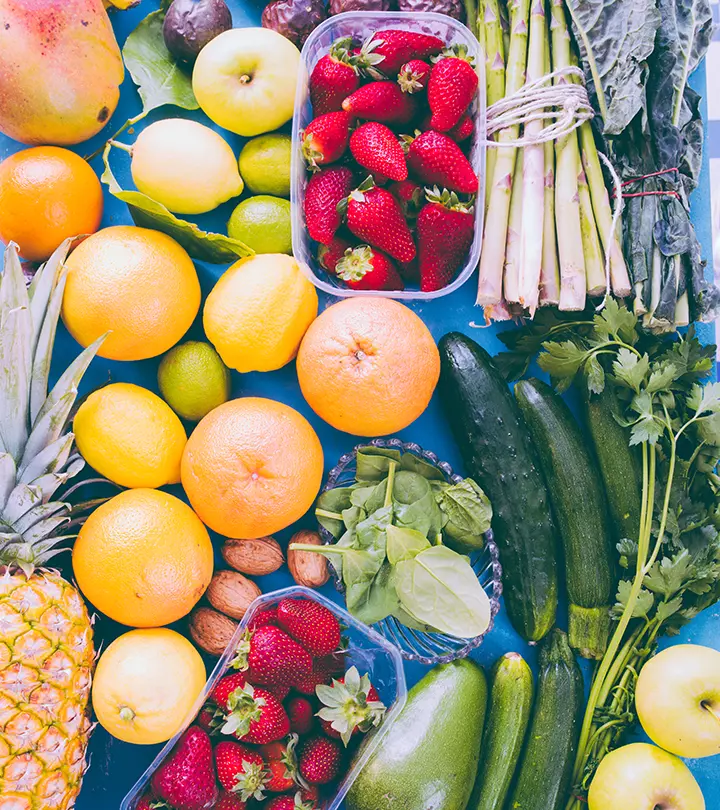



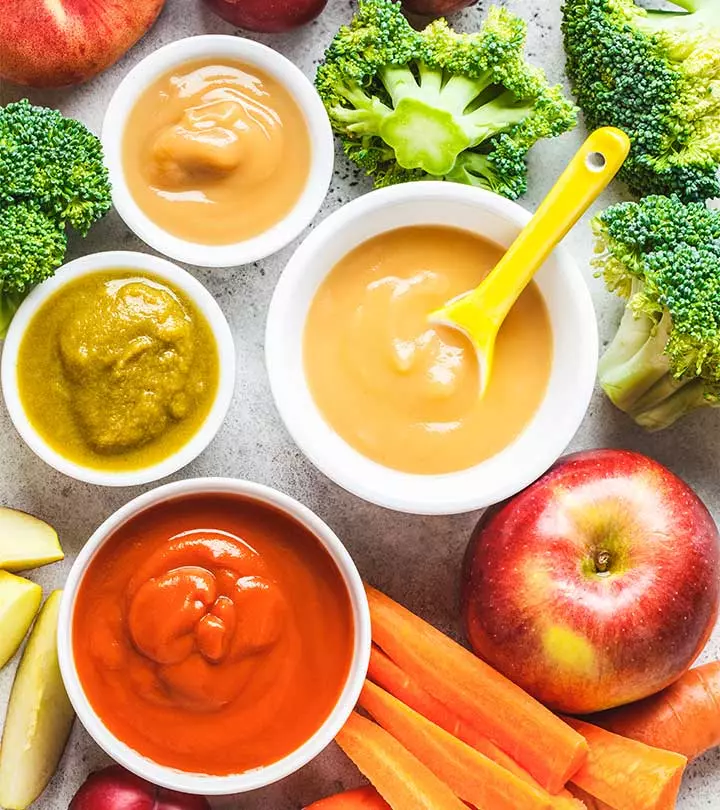





Community Experiences
Join the conversation and become a part of our empowering community! Share your stories, experiences, and insights to connect with other beauty, lifestyle, and health enthusiasts.